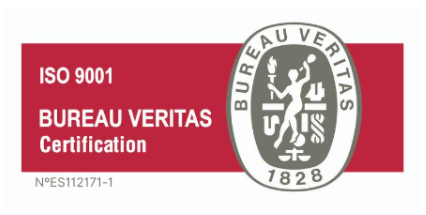¿Sabes cuáles son los principales tipos de sistemas de producción industrial? En este artículo vamos a ayudarte a que los conozcas mejor.
Hablamos de elementos que se conectan para la transformación de los recursos disponibles en productos finales. Detrás de este concepto, se encuentran todas las estrategias y disposiciones para que empleados, máquinas, procesos y materias primas funcionen en una misma dirección.
Todo esto afecta directamente el producto terminado mediante un ciclo repetido, que influirá en este tanto en número, como en tiempos e incluso calidad. Cuando se analizan los procesos industriales, se tiene la posibilidad de optimizar o actuar para que un proceso sea más eficiente en términos económicos y tiempo para la entrega del producto final.
Estas acciones se acometen mediante el control constante y el análisis de información con herramientas como las que te ofrecemos en Mesbook. Por eso, en este nuevo artículo vamos a profundizar en las modalidades de producción industrial, haciendo hincapié en los tipos existentes, así como en los beneficios a la hora de aplicarlos a nuestras empresas. ¿Quieres conocerlos? ¡Te los contamos!
¿Qué es un sistema de producción industrial?
Un sistema de producción industrial es la estructura organizacional dentro de una empresa u organización de dicho sector, enfocada a la elaboración y fabricación de productos a partir de materias primas. La mayoría de las empresas utilizan este tipo de sistemas para producir sus productos, ya sea para el gran mercado o para clientes específicos.
Cada sistema de producción tiene sus ventajas e inconvenientes, lo que hace que la empresa busque la forma más adecuada para generar el mayor beneficio con los mínimos recursos. De ahí la importancia de contar con softwares de gestión de la producción como el nuestro, para lograr la mayor optimización en dichos procesos, así como la detección de errores.
Los principales elementos dentro del sistema de producción industrial son las plantas productoras, los equipos para la producción y la organización de los trabajadores. Hablamos de un sistema que es clave para determinar el éxito o fracaso de una empresa.
Tipos de producción industrial
Como decíamos, cuando hablamos de sistemas de producción industrial, su clasificación radica en la forma que tienen estas empresas en gestionar el producto final, tanto en términos de proceso como resultados. Este concepto se puede dividir en cuatro grandes tipos de producción industiral. Son los siguientes:
- Producción intermitente o por trabajo: Se trata de la producción a demanda, bien para momentos específicos o para determinados clientes a petición propia. Se suele realizar por lotes o de manera individualizada, con lo que se convierte en un sistema mucho más flexible que los anteriores.
- Producción por lotes: Se realiza mediante la elaboración de una serie de productos idénticos y limitados. La producción por lotes es una forma sencilla y económica de producir productos uniformes, pero no de manera masiva. Es decir, generando la producción necesaria para acometer un determinado negocio o transacción.
- Producción en masa: En este tipo de producción las piezas del producto se elaboran en grandes cantidades de manera idéntica, generalmente a través de líneas de ejecución. La producción en masa es una herramienta imprescindible para la economía moderna ya que permite ser competitivo en el mercado global.
- -Producción de flujo continuo: Por último, este tipo de producción también se centra en la generación de miles de productos iguales y en masa, pero con una diferencia respecto al tipo anterior: la maquinaria se mantiene activa durante las veinticuatro horas de cada uno de los días de la semana.de
Beneficios de la automatización en los procesos industriales
- Los beneficios de la automatización en los procesos industriales son muchos. Por ejemplo, se reduce el tiempo de producción y esto se convierte en una mejora de la productividad industrial.
- Por otro lado, aumenta la seguridad tanto en términos humanos como en la de la finalización correcta del producto. Cuanta menos intervención directa del trabajador en los procesos peligrosos haya, más eficiencia y mejores condiciones laborales tendremos.
- También hay que señalar que la automatización trae consigo la disminución de los costes de producción, gracias al estudio, análisis de datos y corrección de acciones respecto al uso de las materias primas.
Pero cabe advertir que un mal uso de la automatización puede conllevar el efecto contrario, por lo que hemos de seleccionar bien el sistema informático en el que vayamos a invertir. Por ejemplo, una mala gestión de las automatizaciones puede provocar problemas en la cadena de procesos y, por ende, bloquear la optimización.
En cualquier caso, es importante apuntar que no todos los procesos industriales se pueden automatizar sin riesgos. La decisión de hacerlo o no, dependerá del tipo de proceso, del estado de la tecnología en el momento y de las características de la empresa.
Si finalmente necesitas aplicar un sistema de control de procesos en tu empresa, no dudes en hablar con nosotros. En Mesbook somos conocedores del día a día del sector industrial y nuestra solución informática te dará la información necesaria en tiempo real, para que puedas tomar mejor tus decisiones empresariales.
Con su uso podrás saber cómo medir la eficiencia en producción y lograr que tu empresa de un salto a la industria 4.0. Contacta con nosotros sin compromiso.




